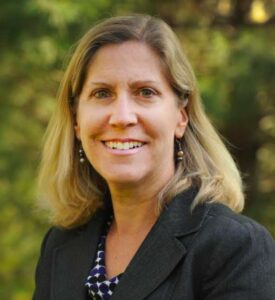 Ed Talk is a biweekly opinion column. The views expressed are solely the author’s.
Ed Talk is a biweekly opinion column. The views expressed are solely the author’s.
In recent months, parents across the country have disrupted school board meetings and threatened school board members.
The issues drawing the ire of parents include wearing masks, school reopening, transgender student policies, and critical race theory.
There is no doubt that these are hot button issues. Parents have been under great stress during the pandemic and they are passionate about what is right for their children. But this is no excuse for these behaviors.
For example, in Utah 11 people have been criminally charged with disrupting a public meeting after they chanted about masks and approached school board members at the dais, causing the meeting to be adjourned.
Private security officers have been hired in Columbia, Missouri due to safety concerns as some parents have come to school board members’ homes to object to their positions on issues.
The Board of Education for the Blue Valley schools in Kansas recently cancelled an in-person meeting and met virtually following reports of threats by parents.
Similar incidents are happening in our area as well.
The Loudoun County School Board recessed a meeting in June to restore order after parents booed, jeered, and chanted. One person was arrested and charged with disorderly conduct.
Police in Fairfax launched an investigation of complaints that flyers were delivered to homes with antisemitic, homophobic, and threatening language towards school board members.
ARLnow reported on an Arlington School Board meeting in April that required the Chair to make repeated calls for order during public comments about the return to in-person learning and that another Board member characterized as having an unprecedented level of vitriol.
Parents have many appropriate ways to express their strongly held opinions. These include lawful protests outside of school board meetings and speaking at school board meetings, following board guidelines for public comment. They can write letters to the editor and meet with school board members.
Another avenue is working through parent-teacher associations (PTAs). While PTAs cannot engage in partisan, political activities, they can advocate about a wide variety of issues.
In Arlington, the County Council of PTAs has done just that, sharing concerns and making recommendations to school officials about issues such as virtual and hybrid learning, school resource officers, and the school boundary process.
PTAs have elected leaders and have by-laws consistent with the National PTA. Their mission is “to make every child’s potential a reality by engaging and empowering families and communities to advocate for all children.” Their values include collaboration, respect, and accountability. All of this helps PTAs promote civil discourse as they address contentious issues.
Many parents are working outside of PTAs to advance their causes. For example, Parents Defending Education encourages parents to create organizations to push back against “destructive and radical ‘woke’ curricula.” Its website details how to create an anonymous Instagram account to document instances of “woke indoctrination” at schools.
The website of the Arlington Parent Coalition suggests that parents check the social media of their children’s teachers and “like” and “follow” them, as well as to do internet searches of the teachers to see what their views are on social and political issues.
The Open Fairfax County Public Schools Coalition is seeking signatures on petitions to remove duly elected Fairfax County School Board members from office related to their views on school reopening.
Parent voices are an important part of school board decision-making. As parents advocate for their children, they also should model for their children — and for all children — how to engage in civil discourse about high-stakes matters. This means at a minimum focusing on the issues, not engaging in personal attacks, and not disrupting school board meetings.
Abby Raphael served on the Arlington School Board from 2008-2015, including two terms as Chair. She also led the Washington Area Boards of Education for two years. Currently she co-chairs the Destination 2027 Steering Committee, is a member of the Board of the Arlington YMCA, and works with Project Peace, the Community Progress Network, and Second Chance.

